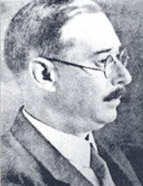

The concept of forms of life gains strategic status in the analytical discourse. While in Lebensformen [Life forms] , he sensed the neo-Kantian matrix of the philosophies of Existenz , subliminal or explicit ontic temporality, existentialism is foreign to him as pensée (also historiographical). The variability of reason, far from generating irrational noise, will lead to the diachronic analysis of rationality in historiographical prospection, which only the history of ideas can federate. In other words, historizing culture would be essential to historizing philosophy, reading the 19 th - century paradigm in Latino Coelho ’ s work, Estudo sobre a Civilização da Grécia [Study on the Civilization of Greece] (1879, 3 rd ed., 1914), despite the ‘manifest defect of its schemati c s, of accentuated logical configuration’ ( Idem , I, p.150 et seq. ).
He objectified the plan by comparing visible solidity in conjuncture studies (European, Iberian, Portuguese), arguing against cultural, scientific or political exegeses that abstracted from conjunctural / structural frameworks and the critical reading of matrix concepts (Theocracy, Inquisition, Absolutism; Modernity, Liberalism, Immanence); bringing forward the intra-disciplinary sign of nosologic knowledge (historical, philosophical, psychological, artistic), moved and confederated in a historiographical reading of great precision in a game of different scales and temporalities: from the meticulous biobibliography, the background of the ‘absorbing sense of positivity’ ( Idem , V, p. 201), to sketches of ‘great syntheses’ and ‘institutions of culture’, the terminus of analytical access (a theoretical harbour for a new journey), clarifying subliminal and correlated worldviews; in short, he appealed to the diachrony of concepts and to analogy as a non-restrictive (or normative) support for the historiographical episteme.
About one of his peers, he ended up writing a self-portrait: ‘a man of scientific spirit, who elaborates and reasons with precise, robust, impersonal concepts, and not a critic who allows himself to be carried away by the rapture of sensibility or the excited feeling of intuition’ ( Idem , p. 203). In Sílvio Lima ’ s summary, denying abusive posthumous nationalisations of the master: ‘Carvalho never took any turn; liberal as a politician, a method rationalist as a thinking being, an idealist as a moral being, a deist as Spinoza (pantheist of reason)’ (see Sílvio Lima, Um místico da razão crítica (da incondicionalidade do amor intellectualis [Silvio Lima, a mystic of critical reason (of the unconditionality of amor intellectualis)] ) , 2009, p.545).
This work is financed by national funds through FCT - Foundation for Science and Technology, I.P, in the scope of the projects UIDB/04311/2020 and UIDP/04311/2020.
